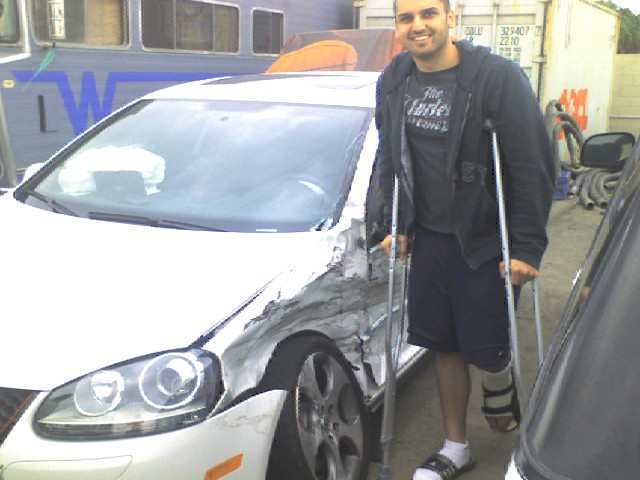It’s not about you, it’s about the person in front of you. I always take these words to heart because it means to give your focus and attention to someone else. Have you ever spoke to someone you didn’t know and just didn’t click? It’s not their fault, it’s yours. That is if you consider yourself to be the better communicator of course. One of the most powerful techniques I’ve ever taught myself was the ability to be able to befriend anyone I want. I don’t say that in an arrogant or egotistical way, I say it in the sense that I am very sincere and provide truth, honesty, and care for the person. My goal isn’t to befriend someone to take advantage of them, it’s to create a mutual relationship that will tremendously benefit the both of us.
Why befriend someone?
I fully agree with the saying, it’s not what you know, it’s who you know. Any business requires skills to network by talking to people that you don’t know. The more people you talk to and befriend, the better chances you have withsucceeding in what ever career your pursuing.
Personality Types
These are the 4 personality types that every single person in the world falls under. You can be only one of the listed personalities, however you can be a different one when put under stress or pressure. I have a friend who is very analytical most of the time but when put under pressure he becomes a hardcore driver. I have another friend who’s very analytical and remains analytical when put under pressure.
So after you understand how you can determine what personality type someone is, you can use your skills of versatility and match the same personality type they are. For example if you are an expressive and the person your communicating with a driver, be a driver. You must understand that people like talking to people that are like themselves. By you matching their personality type, the person will begin to feel comfortable with you and will be more likely to do business with you.
Proactive people vs Reactive people
Proactive:
Takes charge, gets things done. Sees themselves as a force in the world and isn’t shy about applying that force. Takes matters into their own hands; steps up; active over passive. Usually most comfortable working independently – sales or self employed.
Words and phrases they use:
Run with it. Just do it. Go for it. Quit stalling. Get a move on.
Feelings:
A sense of ownership of an activity – they internalize the success or failure of what they have taken on. Criticizing the activity can be seen as a criticism of them. They create identity by what they do – I am a plumber; I am a postman; I am a doctor.
Reactive:
Wait for others, evaluate, tends to over-analyze. Wants to have all the facts and details. Usually happy on a team – as an employee or in a field with clearly established rules to follow.
Words and phrases they use:
Take your time. Let’s not rush. What are the pros and cons? We should wait until we know more.
Feelings:
Worries about rushing into things unprepared. Is willing to let others take charge. Wants all the resources ahead of time. Seeks information and opinions. Doesn’t feel able to stick their neck out. Doesn’t like risk; risk makes them uncomfortable.
The type of question you should ask to determine which one they are:
Do you find it easy to take action when you have an idea, or do you need to do a little research on it first?
Toward vs Away (Pleasure vs Pain)
Toward Pleasure:
These people strive to achieve goals and incentives. They’d rather go after making a millions of dollars, compared to a pain oriented person who would rather not have zero dollars in their bank account.
Words and phrases they use:
Accomplish, get, attain, have, achieve. No pain, no gain. It’s worth the risk. Take a chance. Don’t be a stick in the mud. I’d love to try that.
Will tend to speak about some future condition and skip over the complications of getting there.
Feelings:
Values the new; will seek excitement. Often seen as an optimist. Counts their chickens before they hatch; strong visualization of rewards. Will be uncomfortable with recounting past unsuccessful endeavors. Will get excited about pay-offs of some action. Will strive for bonuses and titles in the workplace. More likely to be a ‘job shopper’ – someone who changes employers to get more money or status.
Away from pain:
Instead of being pulled by pleasure, the person is pushed from behind. They want to avoid pain. They move away from the uncomfortable and stressful. Their viewpoint is looking backwards. It’s the ‘fire beneath them’ that motivates action.
Without any pressures, these people tend to stick to the status quo. They value stability. They are seen as long-term employees who are competent but less motivated.
Words and phrases they use:
Prevent, remove, avoid. I had to; I have to. I don’t want that to happen again. I won’t make that mistake again. This is good enough. It doesn’t matter. Look before you leap. Don’t give up what you have for some pie in the sky. Well, at least we have this. It isn’t worth it. We should stick with the plan. We can’t let that happen.
Feelings:
Uncertainty when confronted with change. Will overreact to failures and avoid situations that seem similar. Feels threatened and responds enough to remove the threat. Worries about what could go wrong and seeks to move away from pain. Unwilling to ‘just forget about it’. Feels regrets strongly. Plays ‘what if’ scenarios. Values stability – more likely to respond to long-term benefits that prevent a painful condition than gains that require some sacrifice.
The type of question you should ask to determine which one they are:
What’s important to you about learning Persuasive Communication?
What would that do for you? Do your answers show a person who envisions a wonderful future condition or do they highlight ‘fixing’ an existing problem? Are you drawn toward some goal or are you moving away from an unsatisfactory state?
Internal vs External
Internal:
Doesn’t require input from other people. Decisions are made by referencing internal cues. Self motivated; values their own ideas, doesn’t need to check with others. Sometimes seems a loner and self absorbed. Can conflict with ‘group think’. Doesn’t have a good sense of ‘the will of the crowd’. Isn’t influenced by polling (4 out of 5 dentists agree). Has to be convinced of the value of fitting in. Prefers situations where their own ideas have worth. Tends to overvalue their own past experiences, even with new circumstances. Can seem opinionated.
Words and phrases:
I, me, my. I think. I already know, you don’t have to tell me. I’ve already thought about it. I know all about it. Pauses to check with their interior mind.
Feelings:
Internal dialog/discussion. Strong feeling of ‘knowing’ from past experiences that are related to the present situation. Feelings of certainty after some thought and consideration. Introspective. Doesn’t mind being alone with their thoughts. Enjoys interior flights of fancy. Often prefers the ‘purity’ of visualization over the ‘dirty’ of real world application. Hates being told.
External:
Values research and the opinions of others. Listens and accepts criticisms. Looks to others for direction. Is influenced by polling and what others think. Wants to fit into the normal standards of a group. Likes consensus, will ‘give in’. Motivated by group ideals and goals. Unlikely to ‘go it alone’.
Words and phrases:
We, us, they. What do you think? You tell me. What about this? How did they do it before? Let’s brainstorm it. How should we do it?
Feelings:
Isn’t sure until an idea is ‘out there’. Wants the approval of others for ideas expressed. More likely to share the basis for decisions. Prefers ‘go along to get along’. Sees different as weird or ‘bad’. Strong group identity, will bond easily and usually loyal. Sees themselves as part of a larger picture. Doesn’t mind being told.
The type of question you should ask to determine which one they are:
When you are in the market to make a big purchase like buying car, what helps you decide? Do they respond with some external person or resource or just their own decision?
Matching vs Contrasting (Sameness vs Difference)
Matching:
Looks to match new things with old, familiar things. Sees the new as ‘like’ similar, known things. Understands best when links are made between the familiar and the less familiar.
Words and phrases:
Same, similar, like, as good as, common. It’s like when… It’s just like… This reminds me of… Remember when…?
Feelings:
Comfortable with extensions from the known – add ons. Values the familiar, loath to change what already works OK. Sees things in types. Can be frustrated with nuances – “But they are all the same!” Tries to put things in categories, sometimes seems prejudiced. Doesn’t rebel against stereotypes.
Contrasting:
Looks to see where the new differs from the old. Focus is on how things differ. Understands best when contrasts are made.
Words and phrases:
Different, alter, change, no comparison, completely new. This changes things. The improvement is obvious. A new paradigm; a fresh idea; a whole new product. It’s as different as night and day.
Feelings:
Wants to see the nuances to pick out differences. Uncomfortable with sweeping categories. Attempts to find key differences in related items or tasks. Gets frustrated with small things that “ought to be changed to make this work better…” Sees things as instances – this one is different than the one before.
The type of question you should ask to determine which one they are:
Suppose you want to import bananas into the United States at a time before bananas were seen here. No one knows what a banana looks like, but they are familiar with other fruits. How would you describe bananas to them?
I was always told to be myself…
Who you are today, is because of the decisions you’ve made in the past. Who you will be in the future, will be determined by what you do now. If you’re goal is to network, meet, and connect with more people, it’s important to put yourself aside and focus on the person in front of you. People would then tell me that this is a very manipulative and fake technique. I perceive it in a different way. I think if you don’t match their persona as a whole, your being selfish and stubborn. Unless your intention is to do harm, matching the person in front of you is very caring, sincere, and real. It all depends on your intention.
This is a mouthful to take in all at once especially since you’re supposed to understand all of it within minutes or even seconds of meeting someone, but practice one technique at a time.
Knowing all of these techniques will enable you to become one Irresistibly persuasive communicator. A few more details about getting in rapport with someone can be seen from an old post called: How to Build Rapport.
How will you APPLY the techniques from this post?

